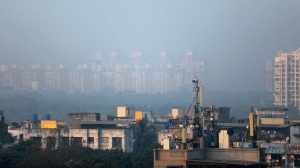Continental shift
The government8217;s decision to launch a high-profile African initiative has been long overdue.

The government8217;s decision to launch a high-profile African initiative has been long overdue. Despite a long history of engagement and a fund of goodwill for India, New Delhi has been slow in seizing the new opportunities in Africa. Just when Africa was basking in the unprecedented attention accorded to it by all the major powers, India seemed to lack a strategic focus towards the region. To be sure, India has reached out bilaterally to major African countries such as South Africa and Nigeria and multilaterally to West African states. The Indian private sector, on its own steam, has been rapidly expanding business ties with Africa. New Delhi8217;s planned summit in April with 12 African states 8212; that represent the full geographic spread of the continent from South Africa to Egypt and Uganda to Senegal 8212; will hopefully unveil a comprehensive and enduring approach to a region that is part of India8217;s extended neighbourhood.
Having arrived late, India has one advantage: learning from the mistakes of other powers. The former European colonial powers lecture the African states on human rights and good governance. Their aid is tied to a whole range of political conditionalities. Africans are fed up with European paternalism and are eager for a diversification of their international relations.
India has no intent to emulate the Europeans in Africa. Nor has India any reason to imitate the US. After September 11, 2001, Washington has devoted a lot more political attention to Africa and has established a separate Africa Command for its military forces. The US is too narrowly focused on either combating terrorism or in promoting humanitarian interventions.
It is the China model, however, that presents the most dangerous temptation for India. Although Beijing has begun to emerge as a political and economic alternative to the West in Africa, its commercial practices have already begun to draw charges of neo-imperialism. For one, China8217;s emphasis has been on gaining control over and sucking out Africa8217;s rich mineral resources and offering very little in return. Its generous economic aid has promoted its own exports and won local political favours. Beijing8217;s arms supplies have accentuated regional conflicts. By dumping its cheap manufactured goods, China has destroyed local light industry and associated jobs. As comparisons with China become inevitable, India must consciously focus on facilitating Africa8217;s resurgence, on the basis of its own human and material resources. Anything less will allow cynics to challenge India8217;s diplomatic adventure as yet another 8216;neo-colonial8217; project in Africa.
- 01
- 02
- 03
- 04
- 05































